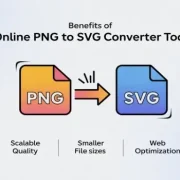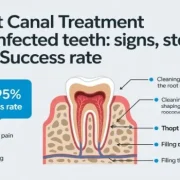In the fast-paced world of business, having reliable transportation is key to success. Whether you manage a delivery fleet, run a mobile service, or use a single work truck, protecting your vehicles with the right auto insurance for commercial vehicles is essential.
This comprehensive guide will walk you through what commercial auto insurance is, why it’s important, what it covers, and how to choose the best plan for your business.
What Is Auto Insurance for Commercial Vehicles?
Auto insurance for commercial vehicles is a type of policy specifically designed to cover vehicles used for business purposes. Unlike personal auto insurance, commercial vehicle coverage takes into account the increased liability risks and operational needs of businesses that rely on transportation.
Whether you own a single company van or manage an entire fleet, this type of insurance protects against financial loss due to accidents, damage, theft, or legal claims related to your business vehicles.
Why Do You Need It?
Standard personal auto insurance typically does not cover vehicles used for business activities. If you’re using your vehicle to transport goods, visit clients, or carry equipment, you need commercial coverage. Here’s why it matters:
- Legal Compliance: Most states require businesses to carry commercial auto insurance if they use vehicles for work.
- Financial Protection: Accidents involving business vehicles can lead to significant damages, repair costs, or lawsuits.
- Credibility: Having proper insurance shows clients and partners that your business is professional and responsible.
Without adequate coverage, one incident could disrupt your operations and lead to heavy out-of-pocket expenses.
What Does Commercial Auto Insurance Cover?
Auto insurance for commercial vehicles typically includes a wide range of protections, such as:
1. Liability Coverage
This covers bodily injury and property damage if your business vehicle is at fault in an accident. It’s essential for protecting your company from lawsuits and claims.
2. Collision Coverage
Covers the cost of repairing or replacing your vehicle after an accident, regardless of who is at fault.
3. Comprehensive Coverage
Provides protection against non-collision incidents like theft, fire, vandalism, or natural disasters.
4. Uninsured/Underinsured Motorist Coverage
If your commercial vehicle is hit by someone without adequate insurance, this coverage helps pay for damages or injuries.
5. Medical Payments Coverage
Pays for medical expenses for the driver and passengers injured in an accident, regardless of fault.
6. Hired and Non-Owned Auto Insurance
Covers vehicles your business uses but doesn’t own, such as employee-owned cars used for work or rental vehicles.
Who Needs Auto Insurance for Commercial Vehicles?
Not every business vehicle needs a commercial policy—but many do. You should consider this insurance if:
- You own, lease, or rent vehicles used primarily for business.
- Employees drive company vehicles.
- You transport goods, equipment, or passengers for a fee.
- You use your vehicle to visit job sites or clients regularly.
- You haul tools or hazardous materials.
Common businesses that benefit from commercial auto insurance include:
- Delivery services
- Contractors and builders
- Landscapers
- Real estate agents
- Mobile pet groomers
- Caterers and food trucks
How to Choose the Right Commercial Auto Insurance
Selecting the right policy for your business involves more than just comparing prices. Here are some tips to help you make an informed decision:
1. Assess Your Risks
Start by understanding how your vehicles are used. Do you operate locally or across states? Are you transporting people or goods? The more detailed your assessment, the better your coverage can be tailored.
2. Determine the Right Coverage Limits
Every business has different risk levels. If you operate in high-traffic areas or use large trucks, you may need higher liability limits to protect your business.
3. Bundle Policies
Many insurers offer discounts when you bundle commercial auto insurance with general liability, property, or workers’ comp coverage. This can help reduce your overall insurance costs.
4. Check State Requirements
Minimum insurance requirements vary by state, so ensure you’re meeting all legal obligations. Some states have specific rules for vehicles that transport goods or people.
5. Work With a Reputable Agent
A commercial insurance agent can help you find the right provider and policy based on your business size, type, and operations. Their expertise ensures you’re not overpaying or underinsuring.
How Much Does It Cost?
The cost of auto insurance for commercial vehicles depends on several factors, including:
- Type and number of vehicles
- Business location
- Driving records of employees
- Vehicle usage
- Coverage limits and deductibles
On average, small businesses can expect to pay anywhere from $1,200 to $2,500 annually per vehicle. However, costs can be higher or lower depending on your industry and coverage needs.
Tips for Lowering Your Premiums
Saving money on insurance doesn’t mean skimping on coverage. Here are a few ways to reduce your premiums:
- Maintain clean driving records for all drivers.
- Install GPS trackers and dash cams.
- Enroll drivers in safety and defensive driving courses.
- Choose vehicles with high safety ratings.
- Review and update your policy annually.
Final Thoughts
Choosing the right auto insurance for commercial vehicles is a critical step in safeguarding your business. Whether you’re transporting goods, visiting job sites, or managing a mobile service fleet, the right coverage helps keep your operations running smoothly—even when the unexpected happens.
By assessing your risks, understanding your coverage needs, and working with experienced agents, you can protect your business assets and your team on the road.
Don’t wait until something goes wrong—secure your business with a commercial auto insurance plan that’s built for your specific needs.


















Comments